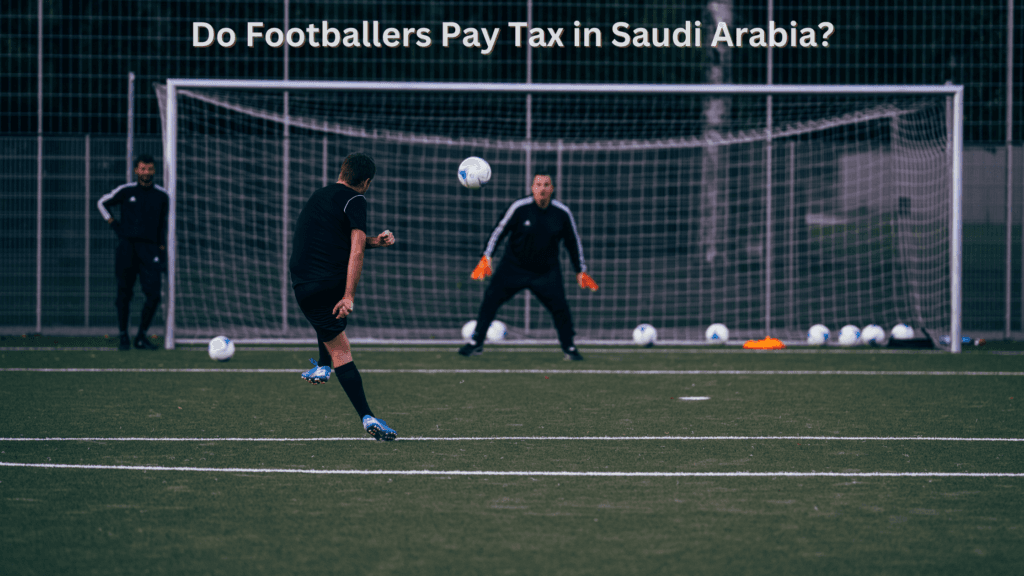Navigating the Financial Landscape for Star Athletes in Saudi Arabia
Saudi Arabia has rapidly become a prime destination for international footballers, offering not only competitive salaries but also a highly favorable tax regime. With the Kingdom’s ongoing push to develop its sports sector, particularly football, understanding the financial aspects is crucial for athletes considering a move. This article explores the tax obligations and incentives that star athletes can expect when playing in Saudi Arabia.
Read: Income Tax in Saudi Arabia for Expats
The Tax-Free Allure: No Personal Income Tax
One of Saudi Arabia’s most significant attractions for high-earning footballers is the absence of personal income tax. In stark contrast to countries like the United Kingdom and the United States, where top income brackets face tax rates of 45% and 37% respectively, Saudi Arabia does not tax personal income. This allows athletes to retain more of their earnings, including salaries, endorsements, and bonuses, making the Kingdom financially appealing. ( Saudi Arabia – Individual – Taxes on personal income )
Comparative Insight
For perspective, European and American athletes often lose a large portion of their income to taxes. In Saudi Arabia, this advantage positions the country as a more lucrative option for footballers aiming to maximize their net take-home pay.
Read: Do You Pay Property Taxes in Saudi Arabia?
Corporate Tax: Opportunities and Responsibilities
While personal income remains untaxed, Saudi Arabia does levy corporate taxes, which is a consideration for athletes looking to set up businesses or invest in ventures within the Kingdom. The corporate tax rate stands at 20% for foreign-owned companies, although it can go as high as 85% in the oil and gas sector. ( Taxes on corporate income – Saudi Arabia )
Tax Incentives for Foreign Investors
Saudi Arabia offers multiple incentives to attract foreign investment, including reduced tax rates for businesses in strategic sectors like technology, manufacturing, and renewable energy. Free zones like King Abdullah Economic City provide a 0% corporate tax rate for the first ten years of operation. Footballers who invest in these zones can enjoy tax breaks and other benefits.
Read: Can British Citizens Buy Property in Saudi Arabia?
Zakat: Religious Taxation and Its Implications
Zakat, an obligatory form of charity in Islam, is imposed on Saudi nationals and Gulf Cooperation Council (GCC) citizens, calculated at 2.5% of wealth. While Zakat does not apply to expatriates directly, it could affect footballers who own businesses in partnership with Saudi or GCC nationals. Understanding this religious tax is important for compliance in joint ventures or partnerships. ( Zakat, Tax and Customs Authority (ZATCA) )
Read: Exploring Real Estate Investment Opportunities in Saudi Arabia
Value-Added Tax (VAT): Managing Consumption Costs
Introduced at 5% in 2018 and later raised to 15% in 2020, VAT is levied on goods and services across the Kingdom. Footballers living in Saudi Arabia will encounter VAT on everyday expenses like property rentals, dining, and transportation. Although Vat increases living costs, the absence of personal income tax helps balance overall financial impacts.
Read: Is Saudi Arabia Good for Real Estate Investment ?
Withholding Tax: Cross-Border Transactions
Saudi Arabia imposes withholding tax on payments made to non-residents for specific types of income, such as royalties (15%) and dividends (5%). However, tax treaties can help reduce these rates, and Saudi Arabia has signed numerous agreements to prevent double taxation. This benefits footballers with international earnings or investments. ( Withholding taxes on cross-border transactions in … )
Read: Can an Expat Buy a House in Saudi Arabia?
Excise Tax: Addressing Public Health Concerns
Excise tax applies to goods like tobacco and energy drinks, often exceeding 100% of the retail price. Although this tax has little direct impact on footballers, those investing in sectors affected by excise tax must account for these costs in their financial planning. ( EXCISE TAX IMPLEMENTING REGULATIONS )
Read: Is Saudi Arabia a Good Place to Invest?
Real Estate Taxation: Investing in Property
While there is no direct property tax in Saudi Arabia, registration fees ranging from 2.5% to 5% may apply to property purchases. Additionally, profits from rental income are subject to corporate taxes for business entities, making careful structuring of property investments essential for maximizing returns. ( Simplified Guideline Real Estate Transaction Tax )
Read: What is the Tax on Real Estate in Saudi Arabia?
Capital Gains Tax: Strategic Investment Opportunities
Saudi Arabia does not tax capital gains on individual asset sales, allowing footballers to benefit from tax-free investment returns. However, corporate entities must pay tax on capital gains, so athletes investing through companies should be mindful of this when planning their financial strategies.
Read: Buying property in Saudi Arabia as a foreigner: a full guide
Conclusion: Unlocking Financial Benefits
Saudi Arabia’s unique tax landscape provides significant financial opportunities for star footballers. The absence of personal income tax, combined with strategic corporate tax policies and favorable VAT regulations, creates a supportive environment for both personal and business financial growth.
Actionable Recommendations
- Collaborate with local financial advisors to ensure compliance with Saudi tax regulations.
- Take advantage of free zone incentives and tax exemptions for businesses.
- Incorporate VAT into lifestyle budgeting and business planning.
- Structure property and corporate investments carefully to optimize tax liabilities.
By effectively navigating Saudi Arabia’s tax framework, footballers can significantly enhance their financial prosperity in the Kingdom, contributing to long-term success both on and off the pitch.





